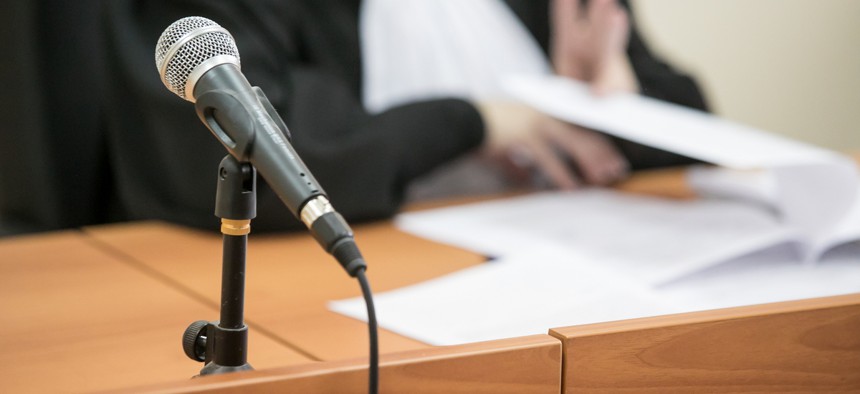Leveraging Technology to Clear Criminal Records

The move will affect thousands of county residents, according to Cook County State's Attorney Kim Foxx. Shutterstock

Connecting state and local government leaders
Cook County, Illinois, will automatically expunge low-level convictions for marijuana offenses using software from Code for America.
Thousands of criminal convictions for marijuana possession will be automatically expunged in Cook County, Illinois, through a partnership with tech nonprofit Code For America as the state prepares to legalize recreational use of the drug.
The collaboration between the county and the tech nonprofit will streamline the expungement process, helping the state atone for “the wrongs of the past,” Cook County State’s Attorney Kim Foxx said at a news conference Tuesday.
“As prosecutors who were part of the war on drugs, we were part of a larger ecosystem that believed that in the interest of public safety these were convictions that were necessary to gain,” she said. “Conviction relief is not only a critical part of righting the wrongs of the war on drugs, it is a recommitment and statement of our values—that a low-level marijuana conviction does not mean that someone is a threat to public safety.”
Under the state’s recreational marijuana legalization law, which takes effect in January, residents 21 and older can possess up to 30 grams of cannabis. Cook County’s partnership with Code For America will automate the expungement process for convictions involving less than that amount of marijuana.
People convicted for larger amounts (up to 500 grams) can petition to have the charge wiped from their records.
Prosecutors had previously worked to streamline expungement, cutting the processing time from 18 months to eight. But that didn’t solve the major problem with expungement—that a majority of people eligible to have their records cleared don’t take advantage of the opportunity because it’s so cumbersome, Foxx said.
“The research has found that people who have been eligible for this type of relief, only about 3 to 5 percent actively work to get those convictions vacated largely because the process is so onerous,” she said. “People don’t know how to do it. The unique part about this is we are doing this on behalf of those who have had these convictions without them having to petition us to do that in the first place, which will allow for us to have maximum impact.”
Code for America’s software program will be provided to the county for free, according to Jennifer Pahlka, the nonprofit’s founder and executive director. The program works by sifting through government records to identify the ones that are eligible for expungement, then forwards those convictions to the state’s attorney’s office, where staff reviews them for accuracy before sending them on to the court. The software can read up to 10,000 records per minute, Pahlka said.
Other states have tackled automatic expungement in different ways. This marks the first time that California-based Code for America will deploy the expungement system outside of its home state, where it’s been used in several jurisdictions, including Sacramento County and San Francisco.
Foxx said that Cook County hopes to begin the process as soon as possible, likely before the recreational marijuana legalization law goes into effect.
Kate Elizabeth Queram is a Staff Correspondent for Route Fifty and is based in Washington, D.C.

NEXT STORY: Does L.A.’s Scooter Data Program Violate State Privacy Laws?




